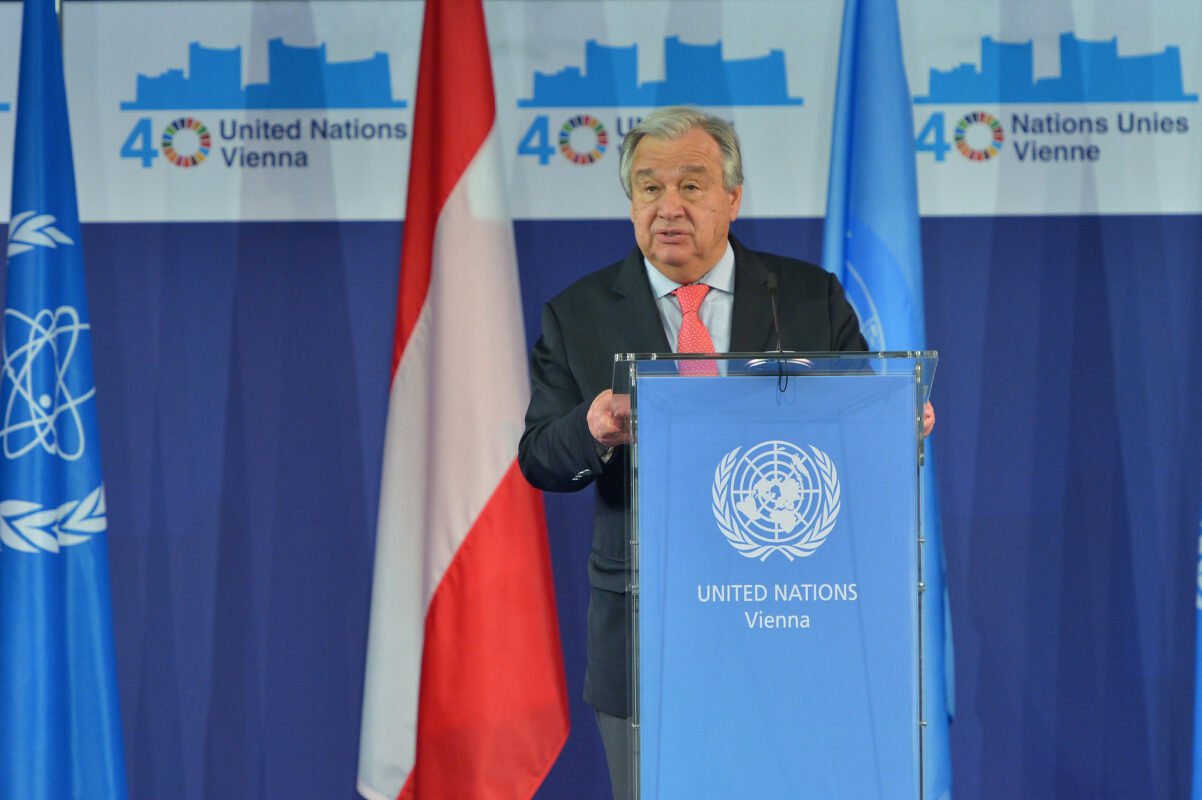The head of the United Nations issued a stark warning Monday that global geopolitical conflicts and escalating military tensions between nuclear-armed powers have pushed humanity to the brink of self-destruction—a looming catastrophe that can only be avoided by eliminating atomic weapons entirely.
“Today, humanity is just one misunderstanding, one miscalculation away from nuclear annihilation,” U.N. Secretary-General António Guterres said in his remarks at the 10th Review Conference of the Parties to the Treaty on the Non-Proliferation of Nuclear Weapons (NPT) in New York, the first formal gathering of NPT signatories since the separate U.N. Treaty on the Prohibition of Nuclear Weapons took effect last year, without support from the United States, Russia, China, and other nuclear-armed countries.
“We have been extraordinarily lucky so far. But luck is not a strategy,” said Guterres, who lamented that “humanity is in danger of forgetting the lessons forged in the terrifying fires of Hiroshima and Nagasaki,” Japanese cities that the U.S. attacked with nuclear bombs in 1945.
The attacks marked the only time nuclear weapons have been used in warfare.
“Almost 13,000 nuclear weapons are now being held in arsenals around the world. All this at a time when the risks of proliferation are growing and guardrails to prevent escalation are weakening,” Guterres continued. “Eliminating nuclear weapons is the only guarantee they will never be used. We must work relentlessly towards this goal.”
The NPT review conference comes as Russia’s ongoing assault on Ukraine and rising tensions between the U.S. and China continue to heighten fears of a large-scale conflict, one that could involve the use of nuclear weaponry. Recent research indicates that the global nuclear stockpile is set to grow in the coming years for the first time since the Cold War era.
The U.S., Russia, and China are signatories to the NPT, but each has been criticized for failing to live up to their obligations under the agreement, which requires all 191 parties to “pursue negotiations in good faith on effective measures relating to cessation of the nuclear arms race at an early date and to nuclear disarmament.”
In his speech Monday, Guterres said NPT signatories must use this month’s conference to make “new commitments to shrink the numbers of all kinds of nuclear weapons so that they no longer hang by a thread over humanity.”
“Future generations are counting on your commitment to step back from the abyss,” Guterres added. “We have a shared obligation to leave the world a better, safer place than we found it. This is our moment to meet this basic test, and lift the cloud of nuclear annihilation, once and for all.”
J. Luis Rodriguez, Stanton Nuclear Security Fellow in the Center for International Security and Cooperation, noted in an analysis for the Washington Post Monday that nuclear-armed signatories to the NPT are likely to “face substantial disarmament demands” from Latin American nations in particular.
“Latin American governments believe nuclear powers have emphasized preventing nuclear proliferation to other countries, rather than reducing their own arsenals,” Rodriguez wrote. “And disarmament advocates have become increasingly frustrated. As a result, during the last [review conference] in 2015, NPT members didn’t agree on a final declaration because of divergent disarmament objectives—just as they failed in the 1980, 1990, 1995, and 2005 conferences.”
“If consensus falls apart yet again,” Rodriguez added, “doubts will rise about the viability of the NPT regime.”
